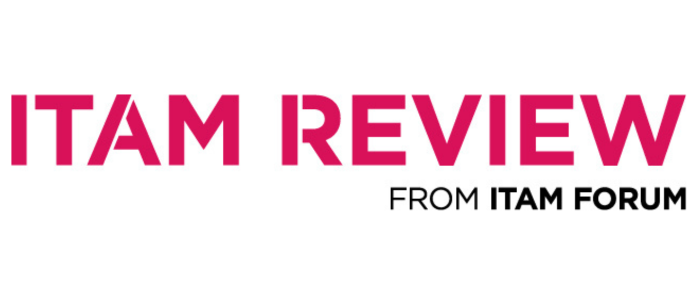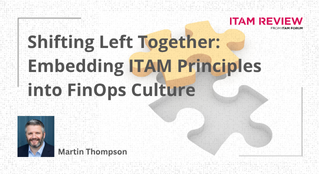AI is Revolutionizing IT Asset Management: Early Research
The preliminary results of a global study by the ITAM Forum have unveiled crucial insights into the adoption of artificial intelligence (AI) in the IT Asset Management (ITAM) industry. The findings show a growing use of generative AI tools such as ChatGPT for professional tasks, but their implementation in ITAM-specific functions is still emerging.
Growing Interest with Cautious Optimism
The study indicates that many ITAM professionals are optimistic about AI’s potential to enhance their industry. During the next five years, they expect significant improvements in automation and business intelligence, which could lead to increased efficiency across ITAM processes.
Adoption Challenges
However, the integration of AI within ITAM faces several obstacles. Key issues include:
- Security and privacy concerns: With 54% of respondents highlighting this, it’s the leading challenge to AI adoption.
- Uncertain return on investment: 43% of respondents are unsure about the financial benefits of investing in AI.
- Policy and strategy shortfalls: 35% of organisations lack effective policies or are still in the early stages of developing AI strategies.
- Skills gap: 32% of respondents noted deficiency in skilled resources and technical expertise.
Utilisation of AI in the Industry
The survey also explores the types of AI applications used in professional environments:
- Generative AI: Leading the charge – used by 47% of respondents for generating new content.
- Natural Language Processing (NLP): Deployed by 24% of respondents for tasks like document analysis and translation.
- Predictive Analytics and Machine Learning: Utilised by 18% of respondents for data-driven forecasting and risk assessments.
Future Projections
Participants are largely positive about the future impact of AI on ITAM:
- Enhanced ITAM Automation: 72% of respondents believe AI will improve the quality of existing ITAM tools.
- Improved Business Intelligence: 69% see AI enhancing strategic decision-making capabilities.
- Increased Operational Efficiency: 62% anticipate a boost in the efficiency and quality of ITAM functions.
Despite these benefits, 32% of respondents highlighted concerns about AI’s impact on employment, particularly the potential displacement of entry-level ITAM jobs.
Skill Development and Strategy
The findings underline the importance of developing AI-related skills and strategies within ITAM organisations. A significant number of professionals have yet to receive formal training in AI applications for ITAM, suggesting a pressing need for educational resources such as online tutorials, hands-on training, and detailed case studies.
Conclusion
As AI continues to evolve, its integration into ITAM promises substantial rewards but also presents significant challenges. Organisations will need to navigate issues of security, investment uncertainty, and skill shortages while fostering environments conducive to technological advancements. The ITAM industry stands at a pivotal point where effective strategy and education could substantially harness AI’s potential, transforming everyday operations and strategic planning.
Can’t find what you’re looking for?
More from ITAM News & Analysis
-
Broadcom vs Siemens AG - A Brewing Storm
The ongoing legal battle between VMware (under Broadcom ownership) and Siemens is yet another example of why ITAM goes far beyond license compliance and SAM. What might, at first glance, appear to be a licensing dispute, ... -
Shifting Left Together: Embedding ITAM into FinOps Culture
During one of the keynotes at the FinOps X conference in San Diego, JR Storment, Executive Director of the FinOps Foundation, interviewed a senior executive from Salesforce. They discussed the idea of combining the roles of ... -
Addressing the SaaS Data Gap in FinOps FOCUS 2.1
I recently reported on the FinOps Foundation’s inclusion of SaaS and Datacenter in its expanded Cloud+ scope. At that time, I highlighted concerns about getting the myriad SaaS companies to supply FOCUS-compliant billing data. A couple ...
Podcast
ITAM training
Similar Posts
-
Broadcom vs Siemens AG - A Brewing Storm
The ongoing legal battle between VMware (under Broadcom ownership) and Siemens is yet another example of why ITAM goes far beyond license compliance and SAM. What might, at first glance, appear to be a licensing dispute, ... -
Shifting Left Together: Embedding ITAM into FinOps Culture
During one of the keynotes at the FinOps X conference in San Diego, JR Storment, Executive Director of the FinOps Foundation, interviewed a senior executive from Salesforce. They discussed the idea of combining the roles of ... -
Addressing the SaaS Data Gap in FinOps FOCUS 2.1
I recently reported on the FinOps Foundation’s inclusion of SaaS and Datacenter in its expanded Cloud+ scope. At that time, I highlighted concerns about getting the myriad SaaS companies to supply FOCUS-compliant billing data. A couple ... -
The Future of ITAM
As an ITAM Industry Analyst, I’m often asked what ITAM’s future looks like. This can be a tough question to answer because when it comes to the future, there are endless possibilities. Often, it seems, some ...




